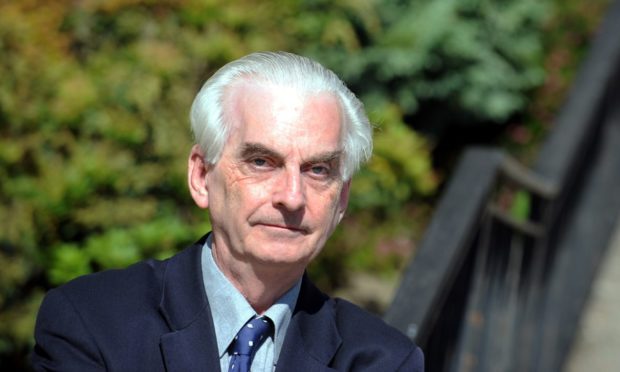A second three-week lockdown will not be enough to get the virus under control unless lessons are learnt from mistakes first time round, an expert has warned.
Professor Hugh Pennington says the government and its advisers must take care not to repeat previous errors or else find this latest set of restrictions will again be followed by a subsequent upsurge in case numbers.
The Aberdeen University microbiologist said: “I hope this one ends better than the last one in March where we got the figures right down to low levels, at a considerable inconvenience and harm to the economy, only for it to come back because we didn’t pay attention to where it was being imported from and how it was being moved around.
“The lockdown will lead to a reduction in numbers but we need to make sure it’s a permanent reduction, not like lockdown number one.
“I have an essential scepticism that a lockdown itself is the answer to the problem.”
‘Proper incentive’ needed for those self-isolating
Instead, Prof Pennington believes that once numbers are sufficiently low the government should give serious thought to improving the contact tracing system and giving people told to self-isolate a “proper incentive” to do so.
“We have to be absolutely certain that people aren’t disadvantaged in any way by self-isolating, in particularly financially, or they just won’t do it,” he said.
“When the time is right, and case numbers are down, we need to give consideration to the quarantine hotels idea which has worked well in Australia and New Zealand.
“Proper contact tracing and self-isolation would be a very substantial move towards reducing the virus.
“If we can get the numbers down by the lockdown, which we’ve done before, as soon as that’s done, we need to take the idea of locking people away quite seriously.”
He also warned that the new, thought-to-be more transmissible variant of the virus, may not be the key cause of the spike in numbers.
“Whatever the new variant may be, it shows that the controls aren’t working because the new variant spreads in the exact same way as the previous one,” he said.
“It still spreads by people breathing it in, having close contact and not wearing masks.
“It needs all that to get around. It has not travelled by wind. It has travelled by infected people travelling when they aren’t supposed to.
“There’s obviously fear in the government that the new variant is going to make life more difficult in terms of control…and, in my view, the fact it’s spreading so quickly shows that controls from before are not working well.
“Three weeks might not be long enough, but it will be entirely down to the virus and how many new cases there are.”
